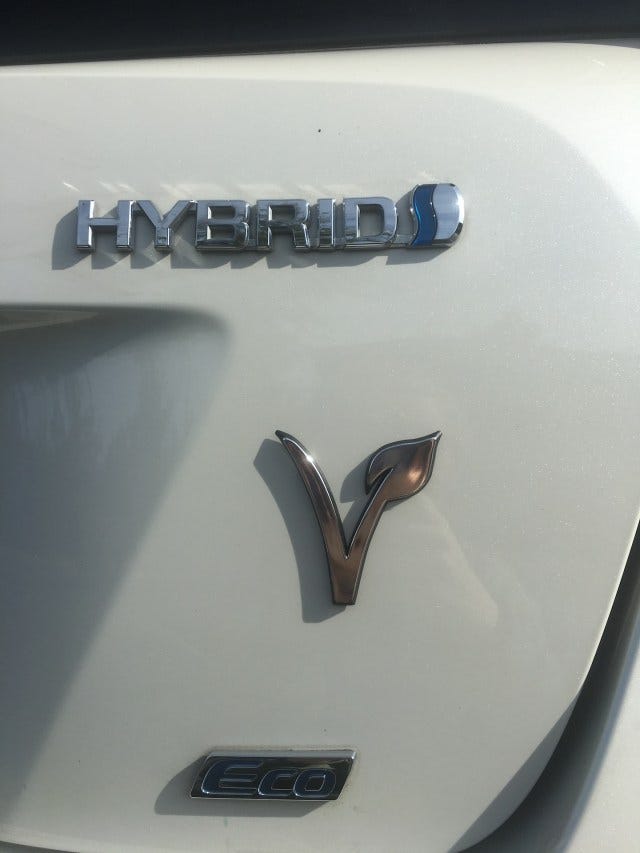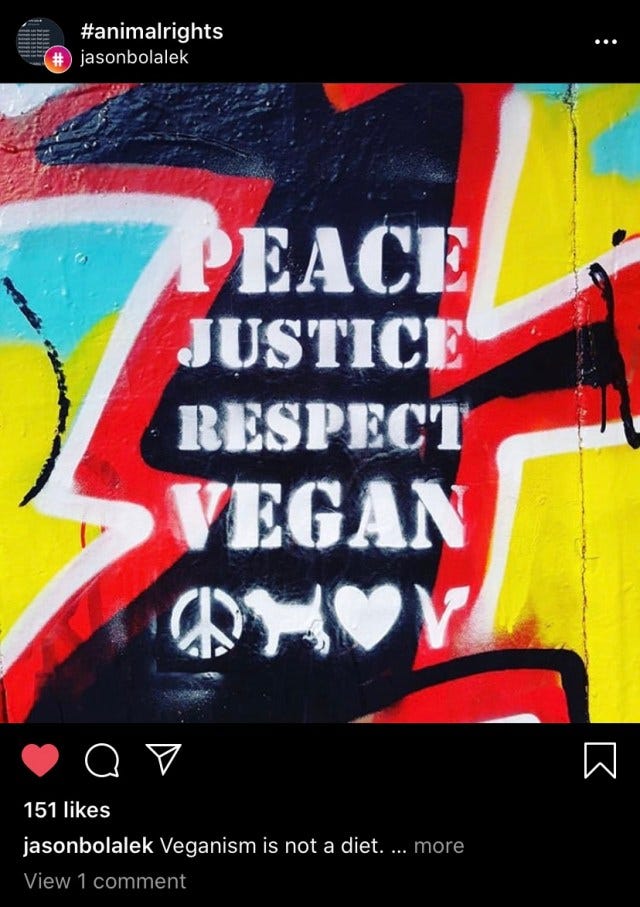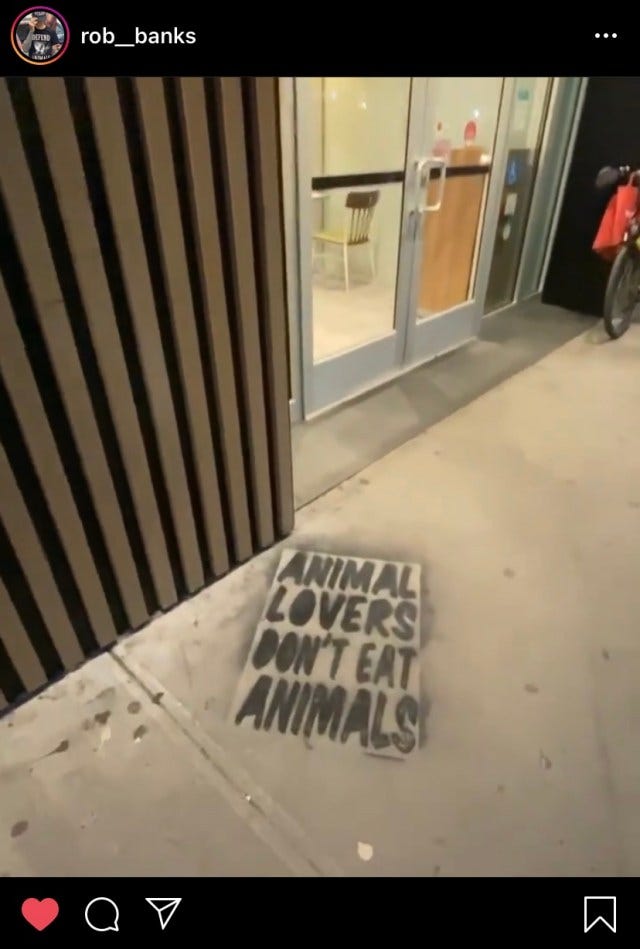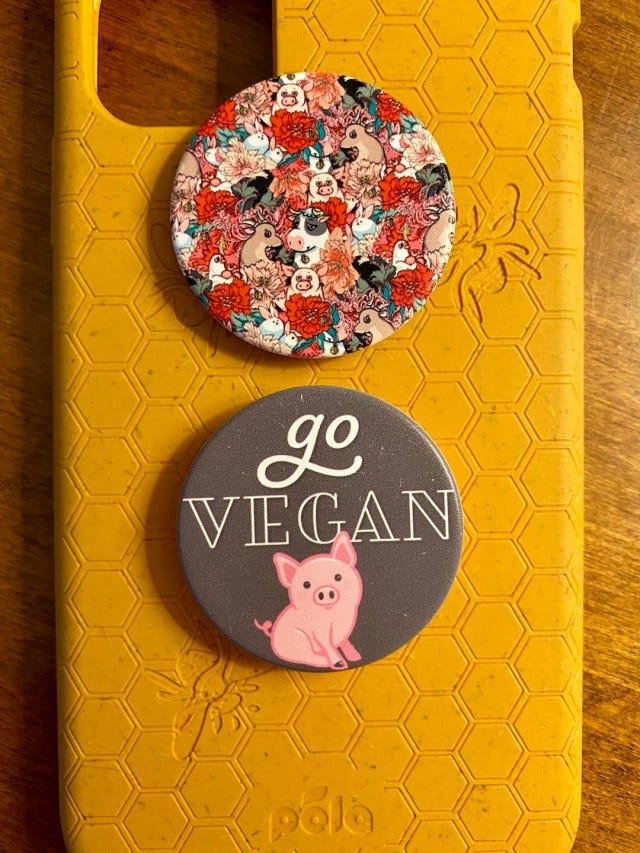How to Become an Introverted Vegan Activist, Pt. 4
"Knowing is not enough; we must apply. Willing is not enough; we must do."
-Johann Wolfgang von Goethe
In wake of Regan Russell's tragic death at a pig vigil in Ontario, now more than ever before we must be active. We cannot allow her to be killed in vain, to allow animal agriculture to destroy us all. It's scary that this industry is so powerful that they view the lives of human activists as expendable as the nonhuman animals they murder. But if we want to prevent the deaths of more animals and more activists, we have to speak up despite the fear of being ostracized, of being targeted, of standing in front of trucks instead of letting them drive past us. Our hearts may be breaking, but we must stand strong. This post is dedicated to her and everyone else fighting for animal liberation.
1. Put vegan books in a lending library
I have spotted these free mini-libraries around in various places, and I've always thought they were such a neat idea. If you have some vegan-friendly books lying around -- whether they be related to animal rights, the environment, health, religion, humanitarianism, etc. -- or if you can afford to buy some used books to put in there, that could be a great form of activism. It's much easier to get someone to read important information when they both have the ability to choose the book for themselves and when it's free!
2. Donate vegan food to animal shelters & sanctuaries
Most people don't know that plant-based companion animal food even exists; just in the past year, there was a dog food ad claiming that "vegan pets are not a thing," an idea generally accepted by most people. (As long as we're not including herbivorous companion animals, I suppose, like mice.) This could be a powerful wake-up call to nonvegan volunteers and employees at animal shelters that their actions aren't entirely aligned with their ethics, and it may encourage them to look further into the ethics of eating animals (both for humans and their animal companions).
3. Car decals & bumper stickers
The thing I really love about my vegan car decal is that it looks like it really belongs on the car. It's only upon closer inspection that you realize it's an addition. Similarly, you can put bumper stickers/magnets on your car to share the vegan message.
4. Leave reviews
It's funny how often we rely on reviews before buying products or visiting new places, but we rarely ever write them ourselves. But if you visit a restaurant or business -- vegan or not -- it's helpful both to them and consumers to leave constructive criticism and positive remarks about your experience. If you went to a nonvegan restaurant with the belief that their vegan menu would be more than just some salads and avocado toast, you need to let them know how they can improve this to entice more vegan consumers. And even though it feels like blasphemy to say anything wrong about vegan establishments, it's better for criticism to come from you than a nonvegan that could entirely write off the lifestyle just from one bad experience.
5. Take the Liberation Pledge
I discussed the Liberation Pledge some time ago in "Should Vegans Eat With Nonvegans?," and I concluded that taking such a strong stance against animal abuse by refusing to sit at tables in which animal products are being served sends a powerful message. Yes, the argument against it is that it does more good to be at the table to discuss vegan issues, but how easy is it to discuss animal liberation when the carnists are chowing down on turkeys' legs? While the efficacy of the Liberation Pledge likely depends on yourself, your eating companions, and the setting, I'd recommend it as a good experiment to try sometime.
6. Activism graffiti
This one is pretty self-explanatory. Similar to chalking, you don't need amazing art skills or a nice stencil (like in the pictures included here) to make an impact. Just some paint/spraypaint, a public area, and a powerful message.
7. Donate animal rights children's books
Children are very impressionable, but the ideas impressed upon them are often of speciesism. They are taught through books about the kinds of animals that belong on farms, of idealistic tales of personified animals, and of what kinds of animal-based foods are normal to eat. (As much as I loved Green Eggs and Ham as a kid, I'm appalled now that children are learning so young that animals are meant to be eaten; it's literally a book about a character that doesn't want green eggs and ham, but his companion keeps annoying him until he finally gives in and eats the darn eggs and ham. That's exactly what we do to little kids who don't want to eat meat! And it's how vegans feel around carnists who can't possibly imagine someone not eating animals. Anyway, rant over.)
Instead, we should be teaching children how to be kind to other creatures, not ingraining unethical beliefs in their minds. You can donate children's books and other kid-friendly animal rights materials to libraries, doctor's offices, hospitals, shelters, schools, churches, daycares, local babysitters, or even give them as gifts to the kids of family and friends.
8. Report vegan hate videos/posts
Because most of my YouTube feed is comprised of videos and channels related to veganism, I will occasionally have an anti-vegan video, such as one from Vegan Deterioration, pop up on my home page. Instead of watching it to give it a dislike and a negative comment, I simply report it as abusive -- because making videos solely to degrade the way vegans look is absolutely discriminatory and YouTube should be ashamed to allow a person like that to continue to have a platform -- and move on. Though we don’t know the specifics of the YouTube algorithm, we know that it favors engagement. So even when you dislike a video and leave a comment, YouTube only sees that as engagement, which is what they want -- more people on their site watching ads and videos -- they will promote that video to more people, which is exactly what we don’t want.
Similarly, you can report social media posts. On Instagram, there's even an option now to report posts containing animal abuse. Though I very rarely see anything related to animal abuse from nonvegan sources on social media, I do report ads for wool products (like dryer balls, which is probably what I see most often), leather shoes, nonvegan food subscriptions, and other products/services that are related to animal exploitation. On YouTube, I also report recommended videos like nonvegan mukbangs as "violent or repulsive content." Because videos where people stuff their faces with dead animals propagate animal violence and are utterly repulsive.
9. Animal rights PopSockets
I have to say that I'm not a huge fan of PopSockets, but with how big phones are getting these days, I felt like I had to get one (which meant I had to order two because it costs less to buy two than one plus shipping -- great). But if I have to have them, then I'm glad they're at least supporting a good cause and spreading a strong message. Through PopSockets' initiative called Poptivism, I purchased Vegan Outreach's PopSockets.
10. Use Amazon Smile
Donating money doesn't necessarily sound like activism, but it can help activists get funding for their work. You may notice that any links I have for Amazon always go to Amazon Smile because a portion of your sale is donated to the charity of your choice. There are many animal rights organizations to choose from -- my family donates to Vegan Outreach -- and I know that the little bit they receive from our orders is going to help their activism initiatives.
11. Put up animal rights signs/billboards
Humans have a natural compulsion to read things, which is why so many roads are littered with signs. You can make a difference on thousands of people by erecting signs/billboards in your area with strong animal rights messages. Of course, a full billboard on a highway would probably be quite pricey, but you could also make smaller signs, like the ones politicians use around election time.
12. Class presentations
In "Standard Arguments Against Veganism, Pt. 7" I mentioned that I gave a speech in a college class about veganism. Though speeches are generally antithetical to introversion, since classroom presentations are required in the curriculum, we might as well take the opportunity to discuss the topic. And, honestly, talking about veganism and animal rights in front of an entire classroom, making at least some of my peers listen to something they probably never considered, holding their attention for 5-10 minutes, was an incredibly rewarding, exhilarating experience. When you're passionate about something, the audience can feel it, and it draws them in; they want to experience that same kind of feeling. Additionally, it gives you an opportunity to openly talk about veganism without the threat of rude interruptions and to gain experience and confidence speaking about it.
13. Sticker yourself
I have an overabundance of stickers that I've accumulated over the years. To put them to good use, I have placed them on my laptop, water bottles, and drinking jars. (You can see a picture of some of my water bottles in "The Best & Worst of Zero-Waste, Pt. 2.") When I'm out in public with any of these things, I want people to be able to see that I'm a vegan.
14. Email "vegan" companies
I have unknowingly patronized nonvegan vegan-friendly businesses in the past with the assumption that they were themselves a vegan company. And while I don't condemn supporting nonvegan businesses with quality vegan products, I believe it's also important to let those companies know why they should become entirely vegan and why some of their products don't align with their values. Sometimes, they're even spreading blatantly false information, and we have to call them out on it. For instance, skincare brand Mad Hippie says this on their FAQ page about why they use beeswax in their sunscreens: "Many vegans are fine with beeswax, but we understand and respect that it is a personal choice :)." This actually still makes me so infuriated every time I read it that writing a polite email was incredibly difficult (literally, my hands are shaking just writing about it -- like, calm down with your high horse "personal choice" BS), but I knew I had to say something to them because they obviously have no clue what veganism is really about.
Another company, Dr. Bronner's, which I had recommended in "Vegan for Dummies" as a vegan business and lauded for their on-bottle advertising against factory farming, also includes beeswax in some products (guess I'm the dummy now). For a business whose brand is so reliant on the ethics of not using animals, I believe it's important to call them out on their speciesism for using animal-derived ingredients in their products. And while it may not seem like much, if every vegan did this, that could put some serious pressure on these businesses to make changes for the better.
15. Donate to Project FANG
I learned about Project FANG on the Our Hen House podcast, and their works is incredibly important. Their main goal is to facilitate familial visitations to prisons and jails for incarcerated environmental and animal rights activists. As imprisonment can be isolating and detrimental to mental health, they also write letters to activists in prison.
be conscious, be kind, be vegan
Related posts you may enjoy:
How to Become an Introverted Vegan Activist: Part 1, Part 2, Part 3
"Why Are There So Many Ex-Vegans?"
"Animal Insults: How We Use Animals to Degrade Humans (Part 1)"
"Standard Arguments Against Veganism, Pt. 7"








